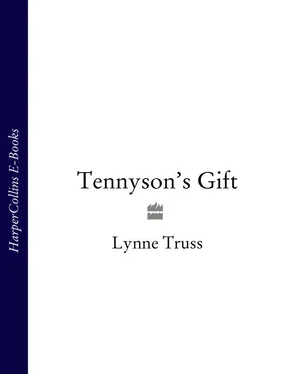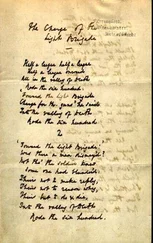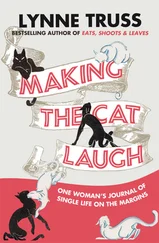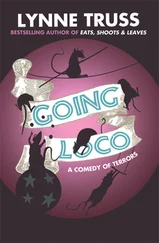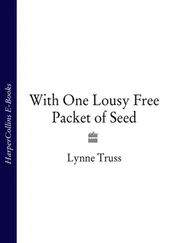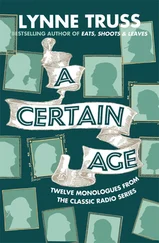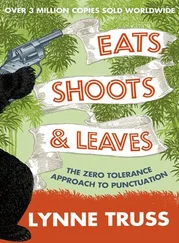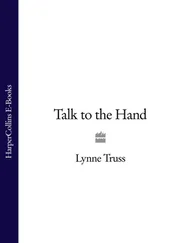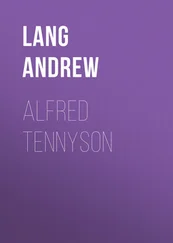‘Would you?’ was generally Ellen’s way of saying ‘thank you’. ‘Would you really?’ she said, as she strode ahead of her puffing volunteer minion. Once at Little Holland House, the First Lord of the Treasury pointed out that the wheel of Ellen’s carriage was running badly. ‘Oh please don’t feel you have to do anything about it,’ she had assured the astonished prime minister, and although everybody else laughed like rills down a mountainside, Ellen was puzzled. She was quite sure she hadn’t meant it to be funny.
How could Watts deny her a trip to the Isle of Wight? What was good enough for the Queen must be good enough for his princess. ‘I don’t know about the larks,’ he said, ‘but I agree it is a good plan. What a shame Mrs Prinsep cannot accompany us, she would love to see Julia. I have never known sisters so fond and close.’
‘Except mine,’ objected Ellen.
‘What? Oh yes, well, the Terrys,’ said Watts, in a tone that suggested the emotional closeness of Terrys did not count.
‘Yes,’ he continued, ‘it will be refreshing to see Mrs Cameron, and she is bound to make us welcome. You know how Mrs Cameron loves to give, give, give!’ (‘Which is fortunate,’ thought Ellen, ‘when you prefer to take, take, take.’)
‘Such selfless generosity,’ he continued, as though reading her mind, ‘is not within the means of all of us. Poor men must rely on the currency of talent to buy their friends. And I am a very poor man, Ellen, I never misled you about that. A very poor man. Yet I esteem Generosity above all other human traits, above Faith and Hope and Discretion and Fortitude and Purpose –’
‘George,’ said Ellen quietly. ‘You’re doing it again.’
‘I apologize, my dear. Ah, ‘tis love, ‘tis love that makes the world go round!’
He slapped his knees and stood up, his wife’s emotional outburst now forgotten.
‘Do you know, I feel quite restored already. Where’s that new bucket of gouache? I believe I can feel an allegory coming on!’
Three Contents Cover Title Page LYNNE TRUSS Tennyson’s Gift Part One: HATS ON One Two Three Four Five Six Part Two: Hats Off Seven Eight Nine Ten Eleven Twelve Part Three: Hats In The Air Thirteen Fourteen Fifteen Appendix About the Author Praise By the same author Copyright About the Publisher
‘I don’t suppose they’ve hung that lovely wallpaper at Farringford yet,’ said Julia aloud.
It was Friday midday at Dimbola, and Julia Margaret Cameron was having her ‘quiet time’ – a daily hour by the clock when she eschewed all household duties (including photography) and sat at her westward-facing bedroom window scanning the chalk downs for a sight of Alfred. Ah, Alfred, Alfred! She could hardly wait to see his reaction when he found all her roses had been painted white. The servants had assumed it was one of her artistic whims (‘Mr Il Signor Flipping Watts is behind this!’), but it was a valentine to Alfred, of course. A white rose means ‘I am worthy of you’. And if Alfred didn’t know that, then at least he would recognize the reference to the flower garden scene in Maud.
The red rose cries, ‘She is near, she is near;
And the white rose weeps, ‘She is late;’
The larkspur listens, ‘I hear, I hear;’
And the lily whispers, ‘I wait.’
Julia loved Maud. She had bought copies for everyone. She had posted them indiscriminately to people she hadn’t even met. When she saw Watts’s ‘Choosing’ picture of his wife for the first time, she recognized at once that Ellen’s attire was an exact replica of Maud’s in the poem:
Queen rose of the rosebud garden of girls,
Come hither, the dances are done,
In gloss of satin and glimmer of pearls,
Queen lily and rose in one;
Shine out, little head, sunning over with curls,
To the flowers, and be their sun.
It was not surprising that silly little Ellen had not endeared herself to Mrs Cameron, when everyone fell at her feet in this nauseating way, and geniuses painted her in the exact guise of Alfred’s ideal woman. Julia did most things precipitately; and thus she had rushed into a decision about Ellen – that she was a spoiled child, hopelessly unserious, whose background was not only common, but very possibly Irish.
As she sat in her bedroom now, all around were testimonials to her impulses. The house itself had been bought on a whim – two houses, in fact, joined together with a castellated tower, and all overgrown with ivies and roses. She had bought it, obviously, to be nearby to Tennyson in case he ever needed a leg of mutton in a hurry, or a loan of a violet poncho. The small window in which she sat was not a natural bay, but had been flung out one night when the fancy took her, and had ever since rested on stilts. In her room were intricate Indian pelmets to remind her of life in Calcutta. Yes, the sound of sawing never really left off at Dimbola Lodge, and the god of Carpentry smiled on Julia Margaret Cameron just as broadly as the gods of Art and Friendship.
Moreover, on her back this morning she wore half a cherry-red shawl, having given the other half to a shopkeeper at Yarmouth two days ago who happened to admire it. ‘What a lovely X,’ was the wrong thing to say to Julia Margaret Cameron, as her friends had long since recognized. In fact visitors to Dimbola were now careful not to exclaim over any object that was not actually bolted to the walls or holding up the ceiling.
At her feet, primly knitting a length of chain-mail with outsize needles, sat Mary Ann Hillier, the local girl (employed on impulse, of course) who posed so well in religious mufti, with her face tilted up to a sublime, framing light. Mary Ann had an unvaryingly stupid countenance, unfortunately, which properly captioned would be ‘What?’ or ‘Huh?’ Yet Mrs Cameron discovered great spiritual depth in Mary Ann’s vacant, open-mouthed expression, and appended all sorts of poetic tags to it. One of her latest shimmering Mary Ann pictures was called ‘The Nonpareil of Beauty’, which had been such a hit with the other servants that below stairs Mary Ann was now known as the nail-paring.
Mary Ann ignored their jibes; she knew she was invaluable. Where would Julia’s photography be without Mary Ann? Mrs Cameron could hardly rely on Farringford to provide decent photographic subjects – it was the general talk of Dimbola that Emily drove all the Carlyles and Ruskins away with her terrible meals; if not, Tennyson sent them scarpering for the ferry soon afterwards by guzzling all the port, blowing smoke in their faces, and reciting Maud till they fell off their chairs.
A railway had been mooted, to bring more people to Freshwater, and Tennyson opposed it with every inch of his body. A visitor once averred in his hearing that a railway link would be ‘dandy’, but Tennyson dismissed this as the opinion of an ignoramus.
‘That man clearly has no idea how one thing leads to another,’ he declared. It was Charles Darwin.
Mrs Cameron had a wistful fleeting vision of a carriage-load of celebrities descending on Freshwater, and then regained control of herself. She grabbed a piece of paper and made a note for more photographic subjects featuring those only constant and reliable resources: Mary Ann, a pool of light, a lily and a cheesecloth shift.
‘The Angel at the Sepulchre’ (she wrote),
‘The Angel Just Outside the Sepulchre’,
‘The Angel on Top of the Sepulchre, Looking Down’,
‘The Angel at the Sepulchre Saying Move Along Now Please, There’s Nothing to See.’
She put a line through the last one on grounds of blasphemy, but was generally satisfied. The important thing when there were no lions around was to make do.
Читать дальше
